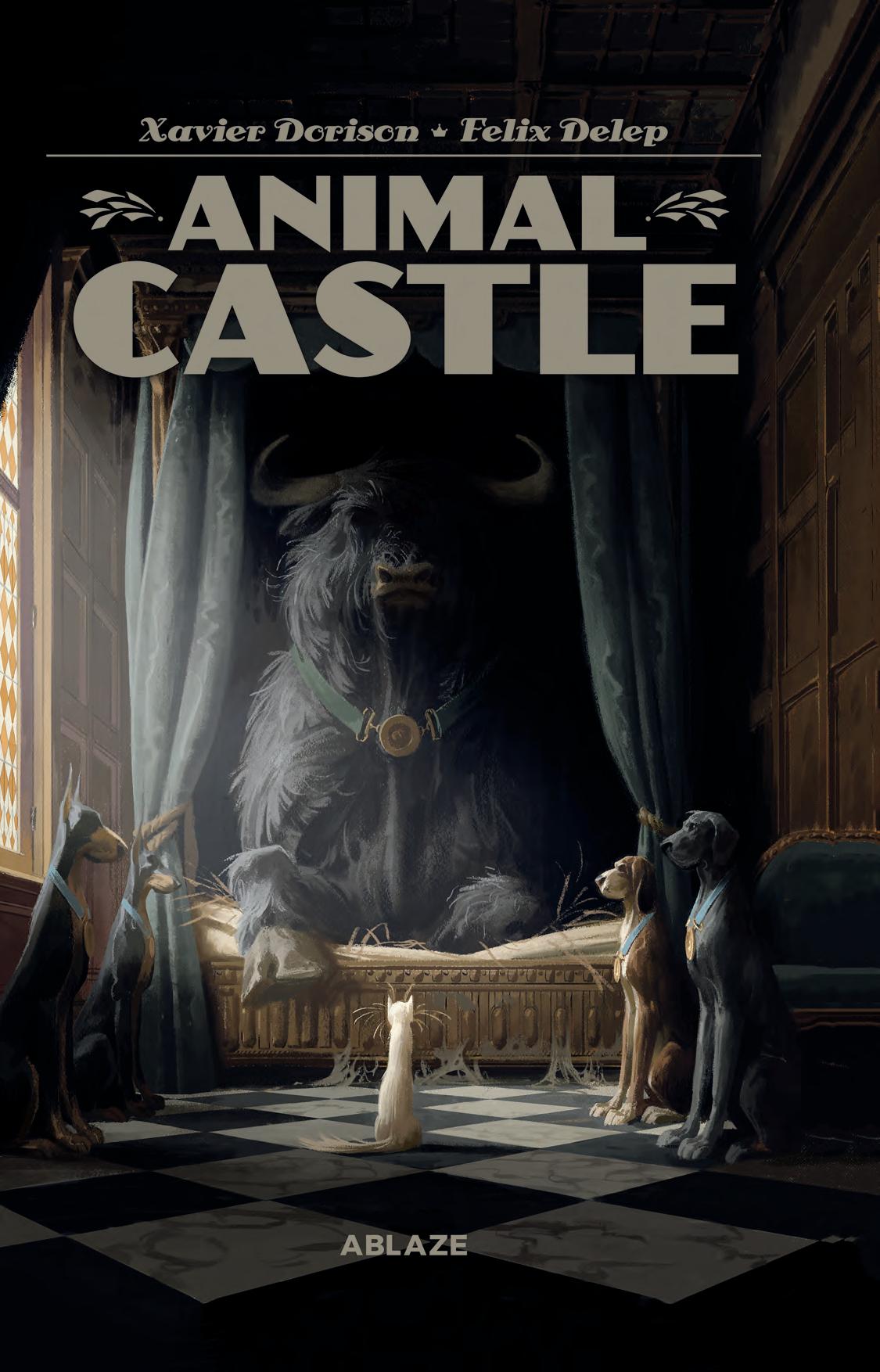






Special thanks to Nolwenn Lebret
Publisher’s Cataloging-in-Publication data
Names: Dorison, Xavier, author. | Delep, Felix, artist. Title: Animal Castle vol 1 / Xavier Dorison; Felix Delep. Description: Portland, OR: Ablaze, 2022. Identifiers: ISBN 978-1-68497-003-2
Subjects: LCSH Animals—Comic books, strips, etc. | Civil disobedience—Comic books, strips, etc. | Graphic novels. | BISAC COMICS & GRAPHIC NOVELS / Literary Classification: LCC PN6747.D67 A55 2022 | DDC 741.5—dc23
11222 SE Main St. #22906 Portland, OR 97269. Le Chateau
ANIMAL CASTLE HC. First printing.
—
ABLAZE,
Translation Ivanka Hahnenberger
Published in 1945, Animal Farm is one of George Orwell’s masterpieces and one of the most important novels of the twentieth century, perhaps even the novel that best describes, through an animal fable – an excellent genre for a universal and timeless narrative – the major tragedy of his time: the practice of bloodthirsty dictators confiscating democratic ideals. The character of the pig Napoleon is not only a portrayal of Stalin, but also one of the architects of the “Terror” that followed the French Revolution and, by premonition, that of the excesses of the independence movements in Cuba, Libya, Iran…This single page does not suffice for a full list of this sad enumeration. Orwell knew dictatorships. He saw them, fought them, and understood them. The portrait he drew is, and will remain, astoundingly truthful.
But the twentieth century is not just the story of a series of failures in aspirations for freedom and justice. In India, a frail little man – a “halfnaked fakir,” as Churchill once called him – achieved the impossible: getting one of the greatest empires to give in. In the United States, a black reverend gave his life for his fight for equality for people of color. In South Africa, a political prisoner, in leading by example, his example, achieved an “impossible” reconciliation between blacks and Afrikaners and avoided the bloodbath deemed “inevitable.” In Poland, a little electrician forces the people in power to bend. In Serbia, the young rockers of “Otpor” liberate their country from a bloodthirsty dictator…
Of course, each of these were about different people, different countries, and different situations, but one would have to be blind not to see what they all have in common: none of these victories were achieved using arms, calls to hate, anger, or revenge. For their causes, these heroes were ready to die, not to kill.
So, George Orwell was right. But he didn’t see it all.
And it is to those who have shown us that there is a narrow, dangerous, uncertain but very real pathway to a better world, to which this fable hopes to make a modest tribute.
On the Farm all animals were equal. In the Castle some are more equal than others.





